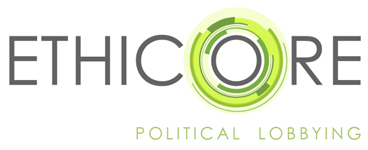RESPONSIBLE BUSINESS: Principle Collaborative Engagement to Leverage Competitiveness
By Abdul Waheed Patel – Managing Director
ETHICORE Consulting and Advisory Solutions
Background
In 2000, the United States Congress passed the African Growth and Opportunity Act, to strengthen trade between the United Status and sub-Saharan Africa that meet eligibility criteria, which requires countries to attain a certain level of economic, legal and human rights standards. AGOA is therefore more than just a trade preference program. It provides the U.S governance and African partners a platform to discuss key economic, commercial and political issue that underpin and are affected by U.S-Africa trade relations.
Introduction
From 9 – 10 June 2011, the AGOA Forum will take place for the first time on the Africa continent in Lusaka, Zambia. The theme will be: “Enhanced Trade Through Increased Competitiveness, Value Addition and Deeper Regional Integration”.
As a precursor to the AGOA forum, there will be a pre-forum event hosted by the World Bank Institute and its partners – namely: The Africa Responsible Business Network (AfRBN); The Young Africa Business Trust (YAfBT); The Young Americas Business Trust of the Organisation of American Status (YABT); United Nations Global Compact; Egyptian Institute of Directors; Private Sector Liaison Network; the Pan African Chamber of Commerce and Industry and the Convention on Business Integrity.
The theme of the event will be: “Responsible Business” Principled Collaborative Engagement to Leverage Competitiveness”. Some questions delegates and participants have been asked to think about includes:
- How can AGOA trade support young entrepreneurs?
- How can Young Business Leaders influence and enhance Responsible Business in Africa and beyond?
- In which ways can the Young Africa Business Trust (YABT) support Young Business Leaders?
- What immediate follow-up can participants undertake and what support do they need to do this?
As such the event will serve as a platform for multi-country knowledge-exchange through bringing together business professionals and young African entrepreneurs to discuss how AGOA ca support sustainable development, youth employment and help enhance investment in Africa through the enactment of responsible business practices. Young business leaders and entrepreneurs will have an opportunity to exchange knowledge and best practices, enabling them to be more effective and competitive. Using technology platforms such as live videoconferencing through World Bank regional country offices, the reach of the event will be expanded to localities such as Nigeria, Kenya, South Africa, United States and Zambia, as well as other parts of the African continents and the world through live webcasts.
In an effort to ensure the realization and actualization of the objective, the AfRBN and YABT will also participate in the one-day civil society and private sector forum on 8 June 2011. This will include a breakout session entitled: “The Next Generation”. This session is expected to be an opportunity to learn and join forces with seasoned civil society and private sector actors taking part in AGOA.
As member of the Africa Responsible Business Network (AfRBN) and a regional World Bank Institute stakeholder in Africa (including the World Bank Innovation Fair and WBI-funded African Network for Social Accountability), I will be participating in the pre-event entitled: “Responsible Business” Principled Collaborative Engagement to Leverage Competitiveness”.
Some critical perspectives
On paper, this ambitious theme and its equally ambitious targeted outcomes resonate poignantly with the ethically focused nature of values and service espoused and held dear by ETHICORE Consulting and Advisory Solutions, in the areas of ethical business and economic governance, including trade, sustainable development, environmental and climate governance.
As I contemplate participation in this event, the opportunity it represents and the horizon beyond it, a number of critical questions and issues come to mind.
- There must be no illusion that for the U.S, AGOA is a charitable act of goodwill towards Africa. In fact, the U.S economy has a definite interest in ensuring access to Africa for resources and market access for U.S companies and their products and services in Africa to complement its domestic market and increasing competition in global markets from emerging market forces such as China and India. Similarly, African countries seek access for African companies, products and services to the U.S market, including the beneficiation of raw materials. As a result, in the AGOA U.S-Africa relationship no one party holds a compelling position. As a result there must at all times prevail reciprocal and mutual respect, trust and prosperity. Else this is one-side relationship doomed to fail.
- There must be some measure of balance in the approach of both African parties and the U.S. What is mean by this is that, indeed African participants in AGOA – be they African governments, business and/or civil society must show a commitment to good governance, rule of law and human right. Simultaneously, this must be balanced with corrective, remedial and mitigation measures by the U.S. for its shortcomings in other international and multilateral processes, which effectively constrain the success of a mutually beneficial and reciprocal AGOA arrangement. For example, the failure of the U.S. to successfully negotiate with developing countries under the DOHA Development Round of international trade negotiations at the World Trade Organisation, as well as the United Nations Framework Convention on Climate Change to mitigate the impact of its international trade and environmental position on the sustainable development prospects of developing nations.
- Africa needs to develop and maintain dynamic and innovative models of responsible business practices to pursue economic growth, job creation and employment, wealth creation and prosperity and sustainable development through building business practices and business organisations that matter and that have a positive impact on broader society (i.e. social businesses or businesses with a social purpose). These are either businesses that provide ethically focused products, goods or service. Or they could be businesses that go about delivering products, goods and services in an ethical manner. In both cases these could be function of: values, strategy, business model, business practices, market conduct, corporate behaviour, social responsibility and impact. The fallout from the global economic and financial crisis in the U.S and indeed other developed economies and countries, has demonstrated the importance of ethical business practices.
As with forums of this nature, it easy for things to deteriorate into a mere ‘talkshop’ with a ‘wish-list’ actions and activities. This would be an indictment of young African business people and our ability to offer localized solutions to our region based on our depth of knowledge and experience of conditions and factors on the ground in doing business in our region. While talking is important, it is often overrated and not the most important aspect in a dialogue of this nature. What get’s spoken is only as valuable as the willingness and ability of the receiver of the message to listen, appreciate and deeply understand what is spoken. This needs to be complimented with a well-thought set of follow-up actions for prioritising impact; timeframes within which these need to be undertaken; identification and allocation of responsible parties and the allocations of resources to support its pursuit. Only then can there be sufficient transparency and follow-through to measure the extent to which African and U.S leaders in government, business and supporting international development institutions have sufficiently understood young African business people and the extent to which our concerns and inputs are taken seriously.
Without this kind of approach this event merely represents another lost opportunity for advancing Africa’s progress and sustainable development and the prosperity and well being of our people. This includes our ability to govern ourselves and determine the manner and conditions upon which we conduct trade and business with the rest of the world in a mutually beneficial manner.
NOTE: About the Africa Responsible Business Network (AfRBN) and the Young Africa Business Trust (YAfBT):
In November 2010, the World Bank Institute (WBI) – in partnership with the World Bank Africa Region, the United Nations Global Compact and various Africa business associations – convened a conference in Brussels entitled: “Strengthening Responsible Business and Governance in Africa”. The conference brought together a range of stakeholders, including business and civil society leaders from Africa and across regions, high-level government officials, donors and representatives of international organisations.
At the conference, the WBI, the AfRBN, the Wharton School of the University of Pennsylvania, the Young Americas Business Trust (YABT), the Egyptian Corporate Responsibility Centre (ECRC) and the U.S. State Department – in an effort to support entrepreneurship and promote responsible business practices across the continent, joined forces with African business leaders and created the Young Africa Business Trust (YAfBT). The AfRBN and YAfBT are networks of African business professionals working towards combining efforts for responsible business and governance with a particular emphasis on job creation and sustainable economic development. The AfRBN espouses environmental and sustainability best practices to meet local demand and development goals.
PS: I hope to write a follow-up blog post reflecting on this knowledge-exchange events and some further thoughts on the critical issues and key questions raised herein.

